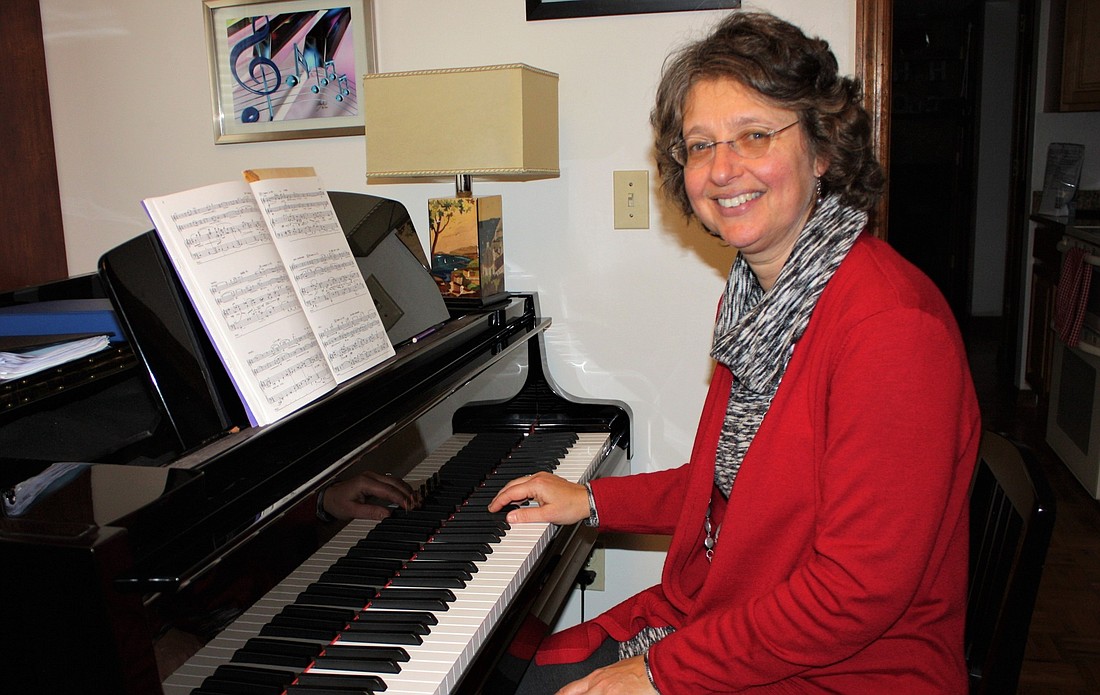- November 26, 2024
-
-
Loading

Loading

Clearing the mind, releasing tension and focusing on the job at hand. These are important principles for pianist Rose Grace, and she believes they can help others in all facets of life. She learned them when she used ancient oriental practices to recover from serious health issues, and they now play a role in her musical performances and teaching.
She is bringing these techniques to the community in the Music and Medicine Symposium set for Feb. 15-16 at the Mary McLeod Bethune Performing Arts Center. Leading the workshops will be clinicians David Kaplan, M.D., a violin player, and Stephanie Mayer-Sattin, music educator, both of Washington D.C.
The public is invited to this free, two-day event and people may attend any part or all of the workshops, which utilize Tai Chi and qugong, a system of body movement, with a goal to achieve an optimal state of wellness and performance for medical practitioners, mental health providers, physical therapists, sports medicine professionals, athletes, performing artists, or anyone seeking to meet the challenges of a fast-paced world.
As associate professor of music at Bethune-Cookman University, Grace, of Ormond Beach, said improvement in mind-body balance utilizes the principle of neuroplasticity, which refers to recent studies showing that the brain can adapt and change throughout a person’s life.
At 2 p.m. on the second day, a research study will be available for groups of musicians, athletes, etc.
BACK TO LIFE
Six years ago, Grace had a lung infection. Due to a misdiagnosis, she said, she had large amounts of medication.
“I could hardly stand up,” she said. “And I had to teach. I had concerts.”
Her path to getting off the medication and back to normal included tai chi and qugong, and she once again could play the piano.
“It was meditative,” she said. “I felt my breathing and cognitive sense was back to normal.”
She became fascinated by the power of eastern philosophy in combination with music.
She started attending conferences, and it was a serendipitous moment when she saw Kaplan and Mayer-Sattin leading programs on music and medicine.
“These are people I had been searching for,” she said. “It was like it was meant to happen.”
She talked to them about expanding the program beyond music to daily life, and that will be the theme of the upcoming symposium.
“I thing everyone will get a lot out of the workshops,” she said. “It will be life changing.”
Grace still practices qugong and it helps her get into the zone for musical performances. She becomes more aware of her body movements.
“The breathing helps you clear and focus you mind and bring it in tune with your body,” she said.
For her students, she encourages visualization techniques, such as playing a piece with the lid closed, just going through the motions while hearing the music in the head. For a performance, she tells students to focus on what they are going to do and not on the audience or worry about difficult parts of the music.
A DOCTOR’S VIEW
Also helping to plan the symposium is Diana Lee, M.D., director of the Odessa Chambliss Center for Health Equity, which implements health programs at BC-U and the community.
“This is something close to my heart,” Lee said. “Music and movement are not just good for the soul, they are good for physical health.”
She said the Asian techniques of tai chi, etc., have been practiced for centuries and holistic health has been growing in recent years. It’s beneficial if people can avoid medications, she said.
“We know people who practice tai chi have a longer life span and feel better,” she said. “Come enjoy the event and feel happier and healthier,” she said.
“Music and movement are not just good for the soul, they are good for physical health.”
DR. DIANA LEE